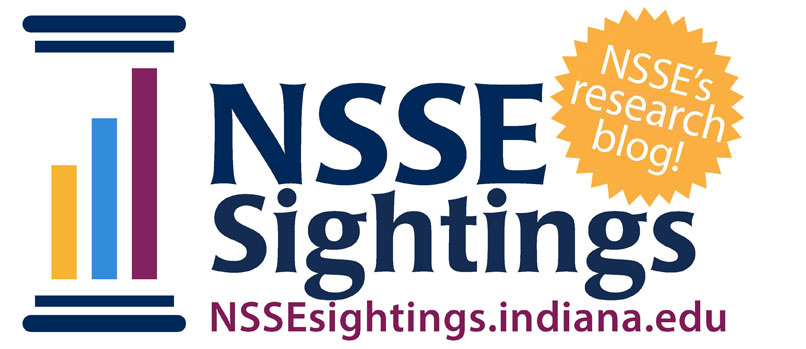Due to a growing concern over students' preparation for the workplace by employers and higher education institutions alike, the need for evidence of employability as an educational outcome has increased. Institutions utilize resources such as career services, experiential learning, and interactions with members of the campus community in order to prepare students for the labor market and the expectations that come along with it. Although many colleges and universities are using the aforementioned entities, it is vital to assess these career and workforce preparation resources to understand their quality, and to use the knowledge gained to strengthen the link between the undergraduate experience and student success after graduation.
Realizing the need for this assessment, the National Survey of Student Engagement partnered with the Strada Education Network (Strada) to develop a topical module that enables schools to better understand how their students' expectations for workforce preparation align with the current undergraduate experience. In addition to gathering data and developing assessment tools, other goals of the survey expansion include publishing reports and other resources to help institutions learn more about the state of career preparation in undergraduate education. The partnership began with the development of an experimental item set on the topic of work and career preparation for the 2020 NSSE administration. These preliminary items were administered to a subset of about 40 institutions, and the results of this pilot administration were used to inform the 2021 Career & Workforce Preparation Topical Module.
For this process, a team was assembled, which featured the Co-Principal Investigators Drs. Alexander McCormick and Jillian Kinzie; Research Analyst, Dr. Angie Miller; and two doctoral students, Bridgette Holmes and myself. Dr. Miller analyzed the quantitative pilot module results, as well as open-ended responses to a question asking about items in the set that were difficult to answer. The graduate students conducted a comprehensive literature review to examine current terms and trends of the field. Terms such as career services, career exploration, and workforce prep courses among others, were searched using various databases. We also reviewed existing Strada reports and scanned institutional career services websites. We used the complied information to further determine which items should be removed from the pilot question set, and what should be added.
We discovered that the initial 2020 item set did largely reflect the literature. However, the data showed that some of the items could be combined or that items were written in a way that students did not fully understand. The team met several times over two-months to rework the items; given the current pandemic, we also specifically assured the items reflected distance learning. For instance, we updated some response options to allow students to report whether they planned to use certain resources in the future, even if they had not already done so because they were only in their first year of study. Furthermore, we removed language that suggested only a face-to-face interaction or experience.
After several rounds of edits during the summer and early fall of 2020, the new Career and Workforce Preparation Topical Module was ready for launch during the 2021 NSSE administration, and open to all participating institutions to select as part of their survey customization. This module assesses how the college experience prepares students for their future by asking participants to respond to questions that address institutional contributions to their career plans, influences on their goals, confidence in work-related skills, career exploration in the curriculum, and use of career resources and services. Check out the Career and Workforce Preparation module on our site!


